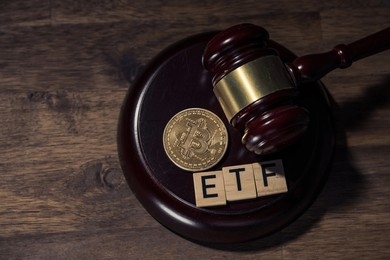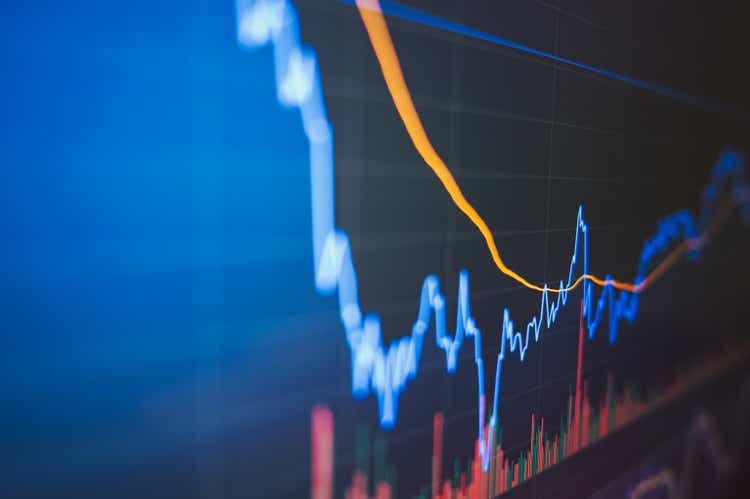The recession America was expecting never showed up.
Many economists spent early 2023 predicting a painful downturn, a view so widely held that some commentators started to treat it as a given. Inflation had spiked to the highest level in decades, and a range of forecasters thought that it would take a drop in demand and a prolonged jump in unemployment to wrestle it down.
Instead, the economy grew 3.1% last year, up from less than 1% in 2022 and faster than the average for the five years leading up to the pandemic. Inflation has retreated substantially. Unemployment remains at historic lows, and consumers continue to spend even with Federal Reserve interest rates at a 22-year high.
The divide between doomsday predictions and the heyday reality is forcing a reckoning on Wall Street and in academia. Why did economists get so much wrong, and what can policymakers learn from those mistakes as they try to anticipate what might come next?
It’s early days to draw firm conclusions. The economy could still slow down as two years of Fed rate increases start to add up. But what is clear is that old models of how growth and inflation relate did not serve as accurate guides. Bad luck drove more of the initial burst of inflation than some economists appreciated. Good luck helped to lower it again, and other surprises have hit along the way.
“It’s not like we understood the macro economy perfectly before, and this was a pretty unique time,” said Jason Furman, a Harvard University economist and former Obama administration economic official who thought that lowering inflation would require higher unemployment. “Economists can learn a huge, healthy dose of humility.”
Economists, of course, have a long history of getting their predictions wrong. Few saw the global financial crisis coming earlier this century, even once the mortgage meltdown that set it off was well underway.
Still, the recent misses were particularly big. First, many economists dismissed the possibility of rapid inflation. When prices took off, Fed economists and professional forecasters widely expected at least a brief period of contraction and an uptick in unemployment. Neither has materialized, at least so far.
“It was always going to be difficult to forecast what an economy was going to look like emerging from a mostly unprecedented pandemic,” said Matthew Luzzetti, chief economist at Deutsche Bank, whose team’s recession forecast last year proved too pessimistic.
Not all economists expected a recession last year. Some correctly expected inflation to fall as pandemic disruptions faded. But even most of them were surprised by how little damage the Fed’s campaign of rate increases appears to have caused.
“The unemployment rate hasn’t even gone up since the Fed started tightening,” said Alan Blinder, a Princeton economist who served as vice chair of the Fed during the last successful soft landing and was a prominent voice arguing another one was possible. “I don’t know how many people expected that. I know I didn’t.”
The series of forecasting mistakes started in early 2021.
Back then, a handful of prominent economists, including Harvard’s Lawrence Summers, a former Treasury secretary, began to warn that America could experience a pop in inflation as the newly elected Biden administration enacted a large stimulus package — including one-time checks and state and local aid — on top of previous Trump administration coronavirus relief. They worried that the money would fuel so much demand that it would push prices up.
Many government officials and economists vociferously doubted that inflation would jump, but the price pop arrived. Some of it was about demand, and some of it owed to bad luck and pandemic disruptions.
Stimulus money and lifestyle changes tied to the pandemic had helped to stoke goods shopping at a moment when the supply chains set up to deliver those products were under strain. Ocean shipping routes weren’t prepared to handle the deluge of demand for couches and gym equipment. At the same time, manufacturers faced rolling closures amid virus outbreaks.
Russia’s 2022 invasion of Ukraine further fueled the jump in prices by disrupting global food and fuel supplies.
By that summer, America’s Consumer Price Index peaked at a 9.1% yearly increase, and the Fed had started to respond in a way that made economists think that a recession was imminent.
Fed policymakers in March 2022 began what quickly became a rapid series of rate increases. The goal was to make it sharply more expensive to buy a house or car or to expand a business, which would in turn slow the economy, weigh on consumer demand and force companies to stop raising prices so much.
Such dramatic rate adjustments meant to cool inflation have typically spurred recessions, so forecasters began to predict a downturn.
“History has shown that those two things combined usually ended up in recession,” said Beth Ann Bovino, chief economist for U.S. Bank, referring to the combination of high inflation and rate increases.
But the economy — while a challenging one for many, between high prices and expensive mortgages — never fell off that cliff. Hiring slowed gradually. Consumer spending cooled, but in fits and starts and never dramatically. Even the interest-rate-sensitive housing market settled down without tanking.
Robust government support helps to explain some of the resilience. Households were flush with savings amassed during the pandemic, and state and local authorities were only slowly spending down their own government pandemic money.
At the same time, a strong job market helped to push up wages, allowing many households to weather price increases without having to cut back much. Years of ultralow interest rates had also given households and businesses the chance to refinance their debts, making them less sensitive to the Fed’s campaign.
And part of the persistent strength owed to the fact that with inflation cooling, Fed officials could back off before they crushed the economy. They paused rate increases after July 2023, leaving them at a range of 5.25% to 5.5%.
That raises a question: Why has inflation cooled even as the Fed stopped short of tanking growth?
Many economists had previously thought that a more marked slowdown was likely to be necessary to fully stamp out rapid inflation. Summers, for instance, predicted that it would take years of joblessness above 5% to wrestle price increases back under control.
“I was of the view that soft landings” were “the triumph of hope over experience,” Summers said. “This is looking like a case where hope has triumphed over experience.”
Summers pointed to several factors behind the surprise; among them, supply problems have eased more than he expected.
A big chunk of the disinflation did come from a reversal of previous bad luck. Gas prices dropped in 2023, and those softer prices trickled through other industries. Healing supply chains allowed good prices to stop climbing so quickly and, in some cases, fall.
And some economic cooling did take place. Although unemployment held fairly steady, the labor market rebalanced in other ways: There were about two job openings for every available worker back in 2022. That’s down to 1.4 now, and wage growth has cooled as employers compete less fiercely to hire.
But that labor market adjustment was gentler than many had expected. Prominent economists had doubted it would be possible to cool conditions by cutting job openings without also causing a spike in unemployment.
“I would have thought that it was an iron law that disinflation is painful,” said Laurence Ball, a Johns Hopkins economist who was an author of an influential 2022 paper that argued bringing down inflation would probably require driving up unemployment. “The broad lesson, which we never seem to completely learn, is that it’s very hard to forecast things, and we shouldn’t be too confident, and especially when there’s a very weird, historic event like COVID.”
Now the question is what that means for the months ahead. Could economists be caught wrong-footed again? They expect moderating inflation, continued growth and several Fed rate cuts this year.
“We’ve landed softly; we just need to make it to the gate,” said Furman, the Harvard economist.
Fed officials could offer insight into their own thinking at their meeting next week, which concludes Jan. 31. Investors expect policymakers to hold interest rates steady but will watch a news conference with Fed Chair Jerome Powell for any hint at the future.
















